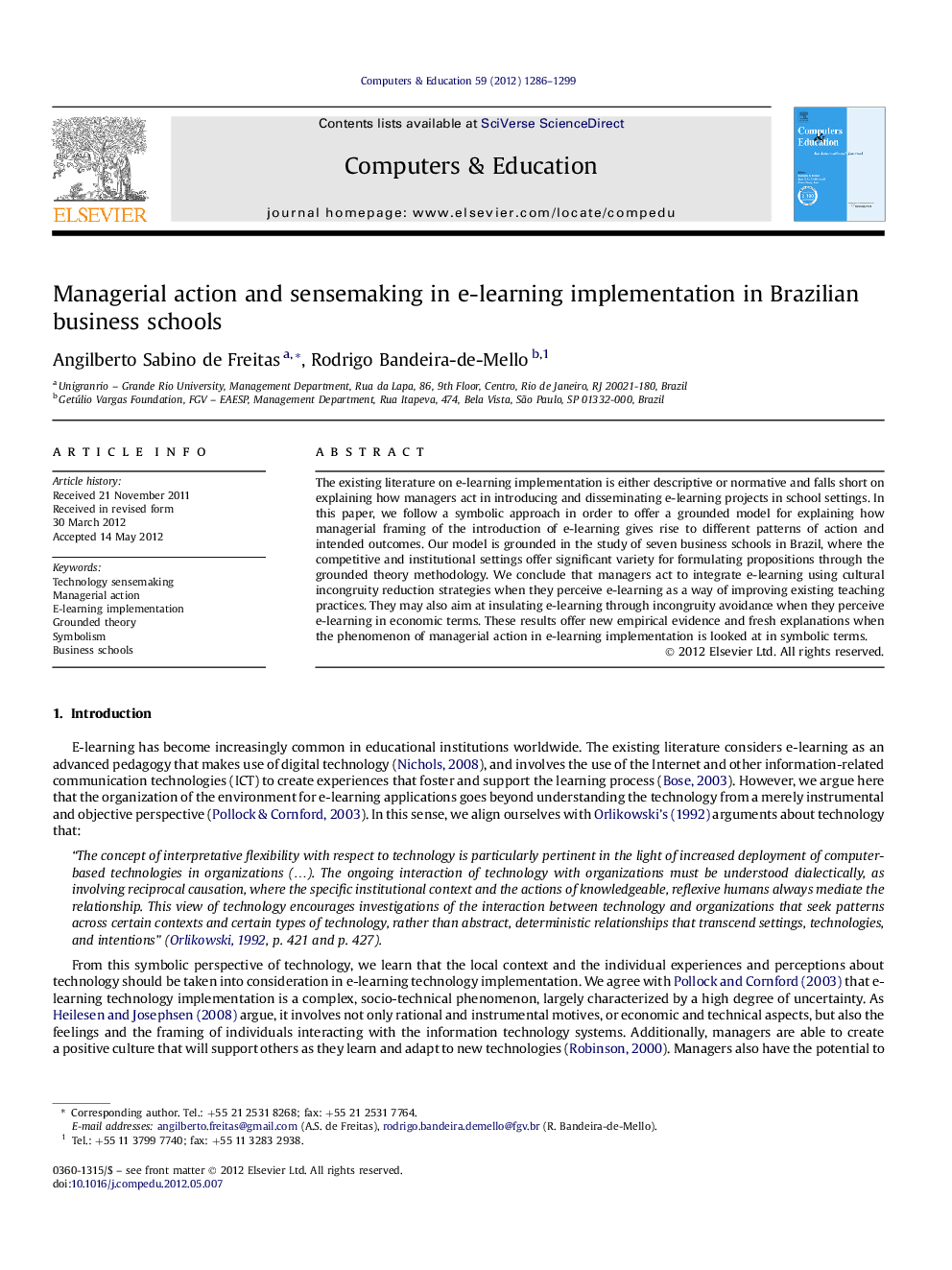| Article ID | Journal | Published Year | Pages | File Type |
|---|---|---|---|---|
| 348669 | Computers & Education | 2012 | 14 Pages |
The existing literature on e-learning implementation is either descriptive or normative and falls short on explaining how managers act in introducing and disseminating e-learning projects in school settings. In this paper, we follow a symbolic approach in order to offer a grounded model for explaining how managerial framing of the introduction of e-learning gives rise to different patterns of action and intended outcomes. Our model is grounded in the study of seven business schools in Brazil, where the competitive and institutional settings offer significant variety for formulating propositions through the grounded theory methodology. We conclude that managers act to integrate e-learning using cultural incongruity reduction strategies when they perceive e-learning as a way of improving existing teaching practices. They may also aim at insulating e-learning through incongruity avoidance when they perceive e-learning in economic terms. These results offer new empirical evidence and fresh explanations when the phenomenon of managerial action in e-learning implementation is looked at in symbolic terms.
► We investigate e-learning implementation in Brazilian Business Schools. ► We follow a symbolic approach for explaining managerial framing of the introduction of e-learning technology in schools settings. ► E-learning technology can be appropriated as a Teaching Process Improvement Orientation, or as a Market Orientation.
